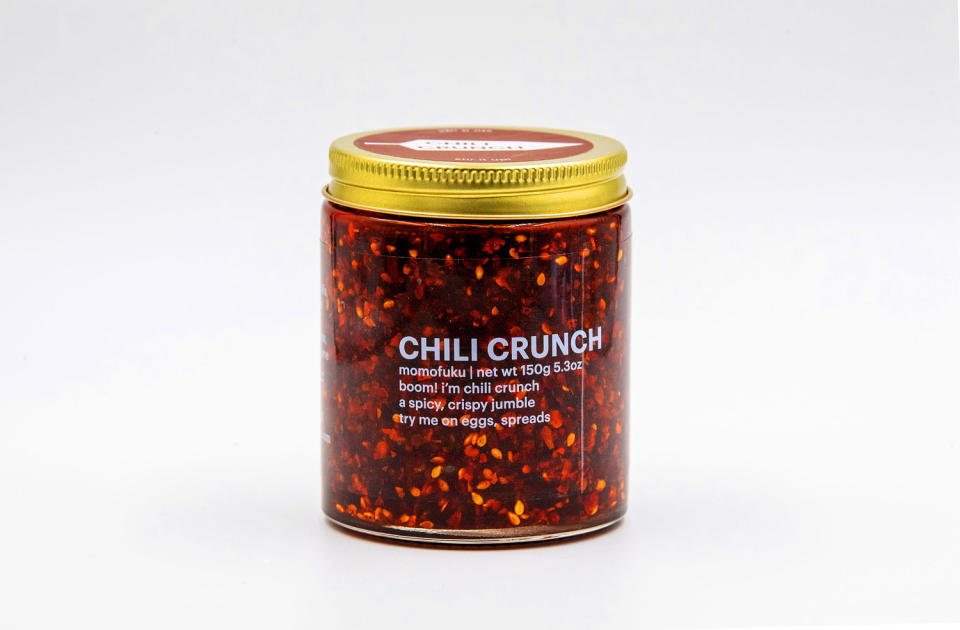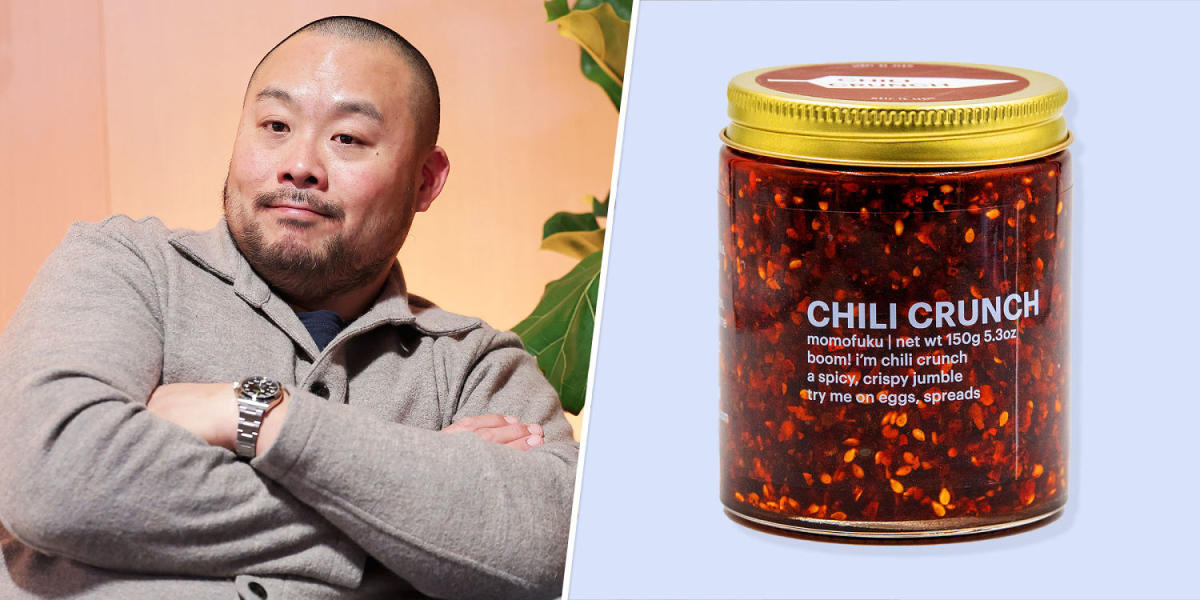As a celebrity chef, he’s no stranger to controversy: Chang isn’t afraid to share hot takes online, and he’s been accused of facilitating toxic work environments in his restaurants. (Chang called accusations made in a 2020 Eater article “consistent with his behaviors at the time,” and apologized, though he didn’t remember them specifically.) But this time, folks are fuming over his recent attempt to own the term “chili crunch,” which it uses for the chile-allium-oil condiment sold under the Momofuku brand.
According to the Guardian, the brand sent cease-and-desist letters to companies using the term “chili crunch” and “chile crunch” and is hoping to successfully trademark the former.
Representatives for Chang and Momofuku did not immediately respond to a request for comment from TODAY.com.
Now, everyone from consumers to small-business owners and even fellow chefs are taking to social media to share their disappointment with the man who has held firm ground as a leader in the Asian American culinary space.
Here’s everything you need to know about the controversy.
What happened?
In 2020, Momofuku started selling jars of chili crunch — a spicy condiment commonly found across many Asian cultures made with chilis and oil — which it launched in 2018.
The product also goes by chili crisp, chili oil, crunchy chili sauce and countless other names, and it took off exponentially across the American grocery market in 2021, though Momofuku was not the first to bring it to shelves.
There are now dozens of brands selling to consumers across the country, and all of them have their own recipe twists and monikers. Some opt to include the word “crunch” in the name, much like Chang’s company did.
On April 4, the Guardian reported Momofuku is currently trying to trademark “chili crunch” with the U.S. Patent and Trademark Office. Though it doesn’t own the trademark yet, Momofuku allegedly sent cease-and-desist letters to an unknown number of brands that use “crunch” in their condiment’s name.

What small business owners are saying
“The phrase that I would use to refer to Momofuku in this case, is a trademark bully,” says Stephen Coates, the lawyer representing New York-based Malaysian food brand Homiah, which received a cease and desist. Homiah sells a Sambal Chili Crunch.
The brand’s founder, Michelle Tew, wrote in a LinkedIn post that the letter “felt like a punch in the gut.” She told the Guardian that had she received a cease and desist from a large corporation like Kraft Heinz, it would have been “distressing,” but “the fact that it was Momofuku makes me feel really, really sad.”
Jing Gao, founder and CEO of Fly by Jing, a Sichuan chili sauce company, wrote on LinkedIn that she is “disheartened” to see Chang’s company allegedly “go after numerous brands including small minority women founded businesses.”
“This kind of action, if successful, sets a dangerous precedent for the squashing of fair competition, not to mention how ridiculous it is to try and take ownership of a generic cultural term,” Gao continued.
She tells TODAY.com that as a business owner herself who was told in the past that her chili crisp product was “too niche” for the American market, she sees more competition as a good thing.
“This isn’t a zero-sum game, and there is enough space for everyone,” Gao says. “The bigger we can grow the pie for all, the better it is for everyone.”
Eric Huang, chef and founder of Pecking House, tells TODAY.com that “trademarking food is an exercise in capitalist nonsense.” Between all the effort he’s seen is necessary for building a business, the work that goes into recipe testing and the logistics of creating a food product, “the only reason you would (trademark food) is for a soulless cash grab.”
Huang continues to call this trademark filing “a disappointing turn of events for someone who so singularly represents AAPI in the food & beverage industry.”
“This is so uncool,” Kerry Diamond, founder of Cherry Bombe magazine and former coffee shop owner, wrote in an Instagram caption. “Dave was once the little guy.”
“I hope it isn’t Dave Chang personally issuing this command,” Huang says, “but rather his boardroom of likely rich, white dudes who got their MBA from Tuck.”
What next?
It’s unclear whether the trademark idea came from Chang himself or other executives at Momofuku. But folks like Tew have been given 90 days to stop using the word “chili crunch.”
“Momofuku trusts that Homiah did not adopt the CHILI CRUNCH mark in bad faith or with an intent to create confusion,” the cease-and-desist letter reads, per Eater. “But because trademark law requires brand owners to police use of their trademarks — and because Momofuku is concerned that consumers may actually be confused here — we write to request Homiah’s cooperation.”
Diamond wrote in her Instagram caption that as a small business — especially for anyone who is a “newbie entrepreneur” — it can be scary to go up against a big company.
“You’re scared so you pay the thousands of dollars to hire a lawyer to tell their lawyer to go away,” she wrote. “It just sucks.”
According to the Guardian, several brands have decided to accept the cease-and-desist and will change their product names to avoid the fees and hassle of a legal battle.
This article was originally published on TODAY.com
